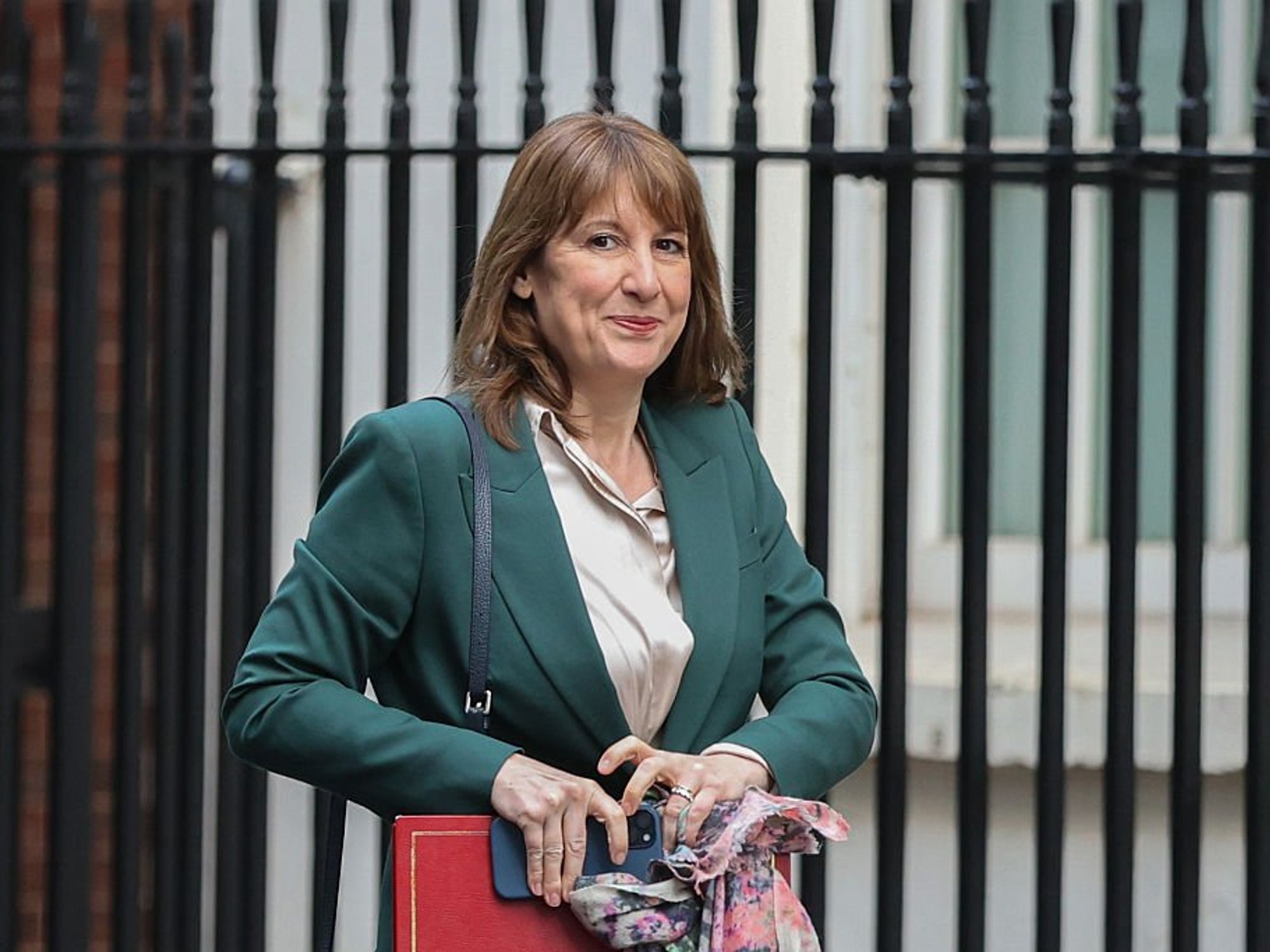Andrew Bailey warns Rachel Reeves's new regulation rules risk repeat of 2008 financial crisis

Labour's history of economic woes and recessions |
GBNEWS

Calls for City deregulation challenged as Bailey urges caution against moves that could destabilise markets
Don't Miss
Most Read
Latest
The Bank of England's governor has cautioned Chancellor Rachel Reeves against dramatically loosening City regulations, warning such moves could trigger a repeat of the 2008 financial meltdown.
Andrew Bailey told MPs on the Treasury select committee that while small changes might help, making big reforms to encourage more risk-taking in the City could do more harm than good.
When committee chair Meg Hillier pressed him about Rachel Reeves' description of regulation as a "boot on the neck" of business, Bailey distanced himself from the rhetoric. "I do not use those terms, let me say that. It is not a term I use," he stated.
The governor emphasised there was no trade-off between financial stability and economic growth, drawing on lessons from the previous crisis.
Bailey said that while some changes to the rules could be helpful, wholesale reforms to unleash risk-taking in the City of London in the name of economic growth would be counterproductive.
"There isn’t a trade-off between financial stability and growth. We’ve had that experience," he told MPs on the Treasury select committee.
Reeves unveiled her deregulation plans at the annual Mansion House dinner last week, declaring that excessive regulation was "choking off" enterprise and innovation across the City.
The chancellor announced plans to overhaul bank ringfencing rules, which currently force financial institutions to separate high street banking operations from riskier investment banking activities. These safeguards were implemented following the 2008 collapse to protect depositors.
Reeves argued "the pendulum has swung too far" since the financial crisis, with an excessive focus on eliminating risk. She warned of a "culture of risk aversion" hampering growth.
The Treasury has committed to reforming the rules following a review led by City minister Emma Reynolds, whilst maintaining it would uphold measures protecting financial stability and depositors.

The chancellor announced plans to overhaul bank ringfencing rules
| PABailey defended the existing regulatory framework, particularly ringfencing measures, arguing they had proven their worth and should remain in place.
"It has established itself as part of the system and to me it would not be sensible to take it away at this point," he told the committee.
He maintained that ringfencing provided crucial protection for UK households and businesses without fundamentally hindering banks' business models.
The governor acknowledged that improvements could be made "at the margins" and pledged constructive engagement on potential refinements. However, he stressed that compromising basic financial stability would be dangerous.
"Success in financial stability is when nothing happens," Bailey explained, noting that despite market volatility this year, the UK had avoided financial stability problems or concerns about failing banks.

Andrew Bailey said that while some changes to the rules could be helpful, wholesale reforms could be counterproductive
| PAThe Government's deregulation push forms part of Labour's broader strategy to stimulate economic growth following years of stagnant living standards.
Despite the UK outperforming other G7 nations in the first quarter, the economy contracted in April and May. Unemployment and inflation are climbing as businesses struggle with tax increases and uncertainty stemming from Donald Trump's trade policies.
Bailey noted that Trump's unpredictable tariff decisions had prompted investors to reduce their exposure to dollar assets, causing market disruptions.
The governor observed that "the most crowded trade in the market at the moment is short dollar" and highlighted a "breakdown in established correlations in markets" since Trump announced reciprocal tariffs in April.
Stock markets initially plummeted following Trump's tariff announcements before recovering to reach record highs.

The 30-year UK Government bond yield has climbed to 5.43 per cent from 4.67 per cent a year ago
| PixabayBailey sought to reassure MPs about rising UK government borrowing costs, describing the increase as part of a global trend rather than a UK-specific issue.
"We've seen an increase in term premium in government bond markets, yield curves have steepened," he explained, adding this was "a global phenomenon, it is not in any sense unique [to the UK]."
The 30-year UK Government bond yield has climbed to 5.43 per cent from 4.67 per cent a year ago, whilst US equivalents rose to 4.93 per cent from 4.48 per cent.
His remarks coincided with ONS data showing June's debt interest payments reached £16.4 billion, the second-highest for that month since records began in 1997. Government borrowing exceeded £20 billion, surpassing official projections.
More From GB News










